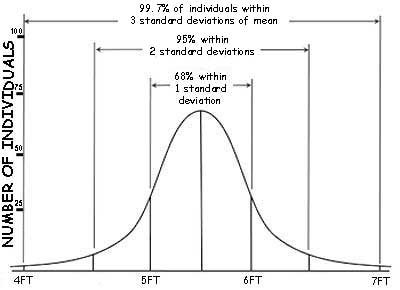KNOW YOURSELF
REMEMBER THE CHILDHOOD "YOU"
The most obvious way to begin knowing ourselves is to remember what we liked most when we were children. If we felt good nursing others, or hunting, or drawing pictures, those are good indicators.
However, small children want the approval of their parents, so a child may enjoy doing something just because he or she is doing what the adult wants them to do. That may or may not be what the child is naturally predisposed to do.
It's a tricky matter. However, the following can provide further guidance.
THE GENETIC FACTOR
What we think, feel and do is hugely affected by our genetic makeup. As such, it's worth considering that by far the greater part of our genetic makeup was formulated very long before humanity itself arose.
For example, our reptilian ancestors already displayed anger, fear, territorial behavior, pecking order and aggression. When mammals arose from reptiles, their brains added the ability to feel love, sadness, jealousy and hope. Human brains have added the ability to imitate, speak, write, plan, to reason symbolically, and to conceptualize.
Notice that it's easier to be afraid and get angry than to reason symbolically, conceptualize and imitate -- easier to yield to the urges originating in our reptilian brain, than to express higher human capabilities. Even in terms of brain anatomy, the reptilian part of our brain is "more deeply rooted" than the other parts, the mammalian and human brain compartments setting atop the reptilian compartment like a helmet. Knowing all this helps us recognize which of our thoughts and feelings are of "a higher order."
While reflecting on how genes affect our thoughts and feelings, it's good to keep in mind that Nature is obsessed with diversity. Moreover, all traits such as those mentioned above are present in each person in varying degrees and in different combinations. A good "thinking tool" helping us get a handle on the situation is that of the Bell Curve, an example of which is shown below. It plots the heights of people in an imaginary community.

Referring to the scale at the chart's left), you can see that in this imaginary community the average height is ±5½ feet. Hardly anyone is shorter than 4ft, or taller than 7ft, but there may be some. Around 70 people are ±5½ft tall, while about 28 are 5ft. If you were a member of this community, your own height could be plotted on the curve, and there's a 95% chance that your height would occur somewhere between 4½ft and 6ft. A similar chart might plot such features as your performance on IQ tests, your tendency to be jealous, or your vulnerability to suggestions. If all your human features were plotted separately on hundreds of Bell Curves, there's little chance that your collection of Bell Curve charts would be exactly the same as someone else's.
THE EXPERIENCE FACTOR
As soon as we're born, our family and community begin programming us, so that we "fit in." This is important, because much in life depends on how we behave. For example, our genes may predispose us to be real hotheads and do things that cause us trouble. One hopes that somewhere along the line we're taught to control our tempers and cooperate with others.
The influence of family, community, teachers and friends shouldn't be underestimated. In the US at this time there exists a huge political divide between regions that are predominantly rural and small-town, and those with cities and colleges and universities. The genetic makeup of the people in each part is more or less identical, so the vast differences in political beliefs and such social factors as religiosity and race relations must be due to social programming.
We humans are vulnerable to many kinds of mental manipulation. Consider the mysterious reality of hypnotism. By repeating a suggestion or belief again and again, in an authoritative and convincing manner, hypnotists can cause many people to believe almost anything. You might look up the matter on the Internet. Same thing with mass hysteria. And that's not mentioning how advertisers convince us that we can't be happy unless we buy things.
SELF DECEPTION
None of our efforts to learn who we are will succeed if, when we examine our predispositions and their origins, and the content of our present lives, we lie to ourselves. Self deception to a certain degree is necessary, as when we need to give ourselves courage or hope in a desperate situation. However, self deception more than anything keeps us from learning who we are.
All we can do is hope that, if you're sincere about attaining a higher state of spirituality, you have the resources enabling you to deal with this problem yourself.
IS THERE ANYTHING THAT'S "REALLY US"?
If we subtract all genetically based predispositions from what we think of as "our real selves," as well as all our thinking, feeling and doing based on society's expectations, is there really anything else left to us? With some people, it's hard to say that there is. However, our definition of spirituality indicates the possibility of it, if we try.
In fact, that part of you that's constantly looking for and finding your "real self" is precisely what spirituality is.